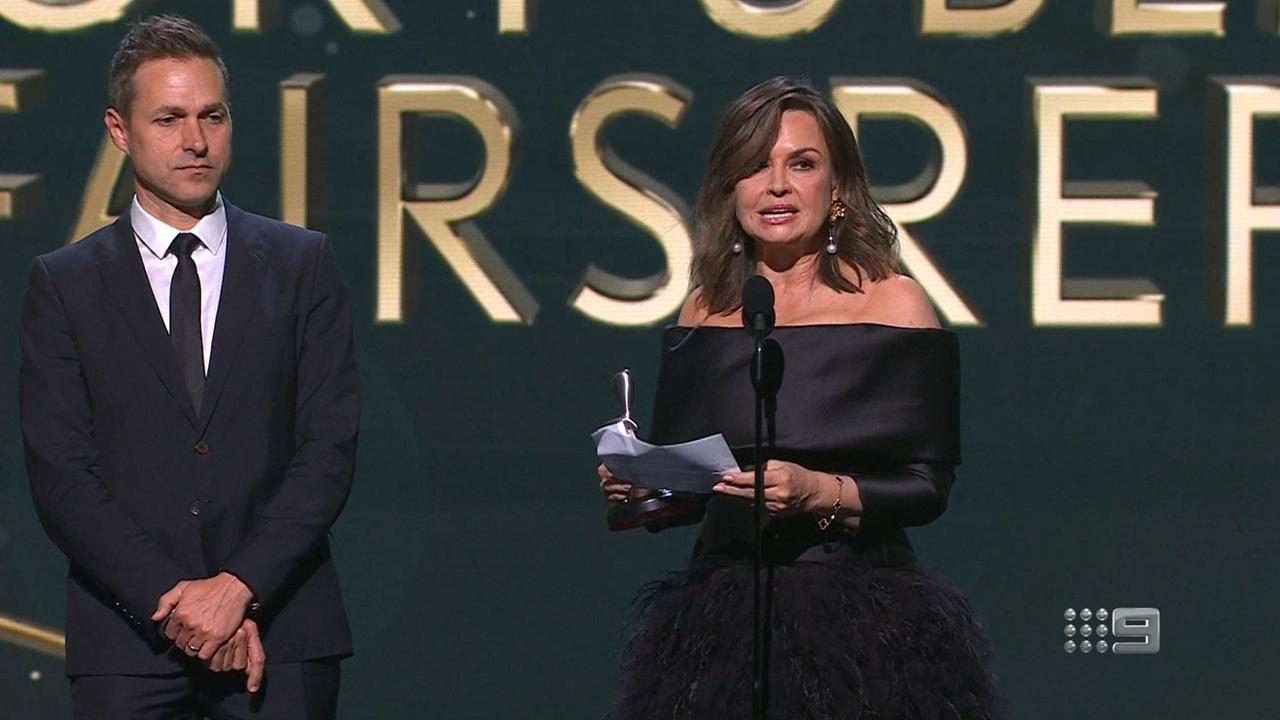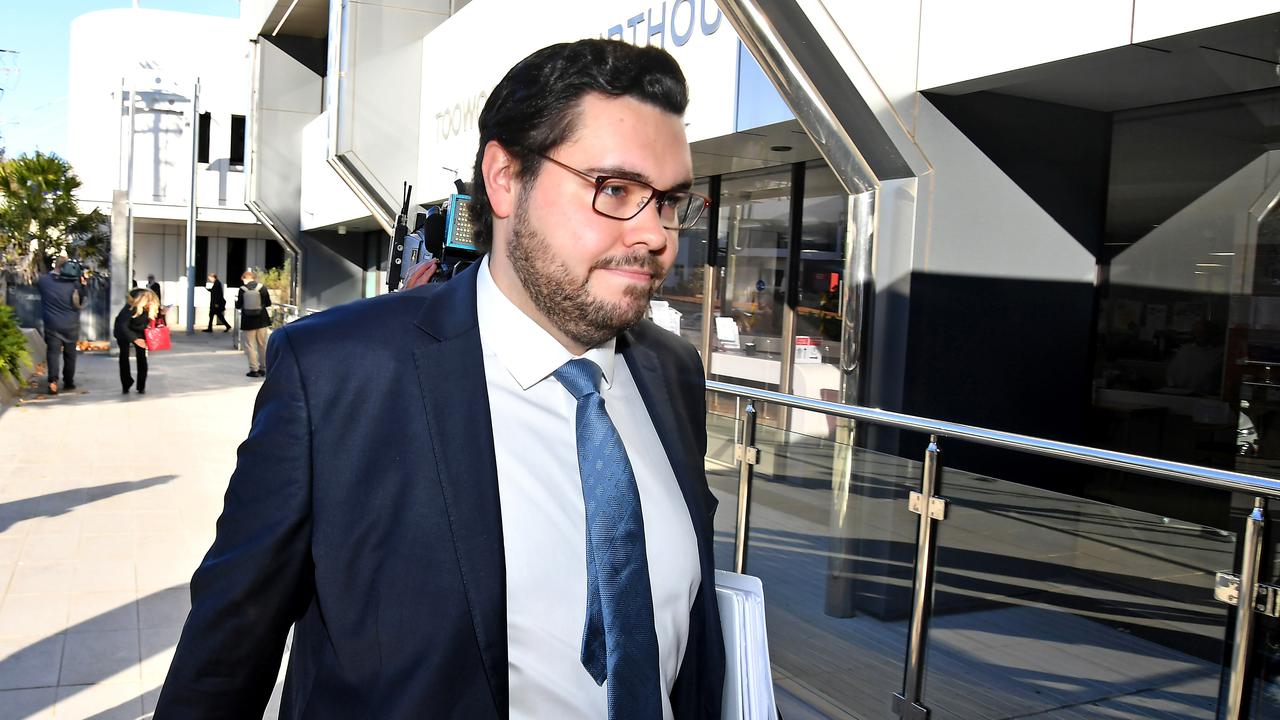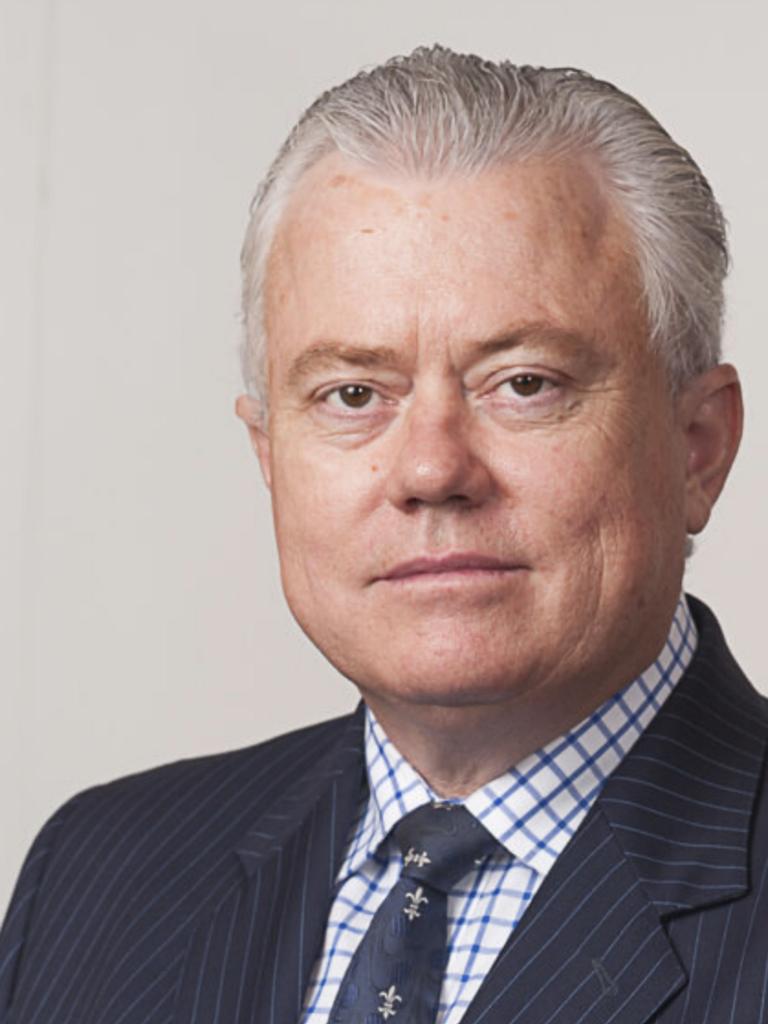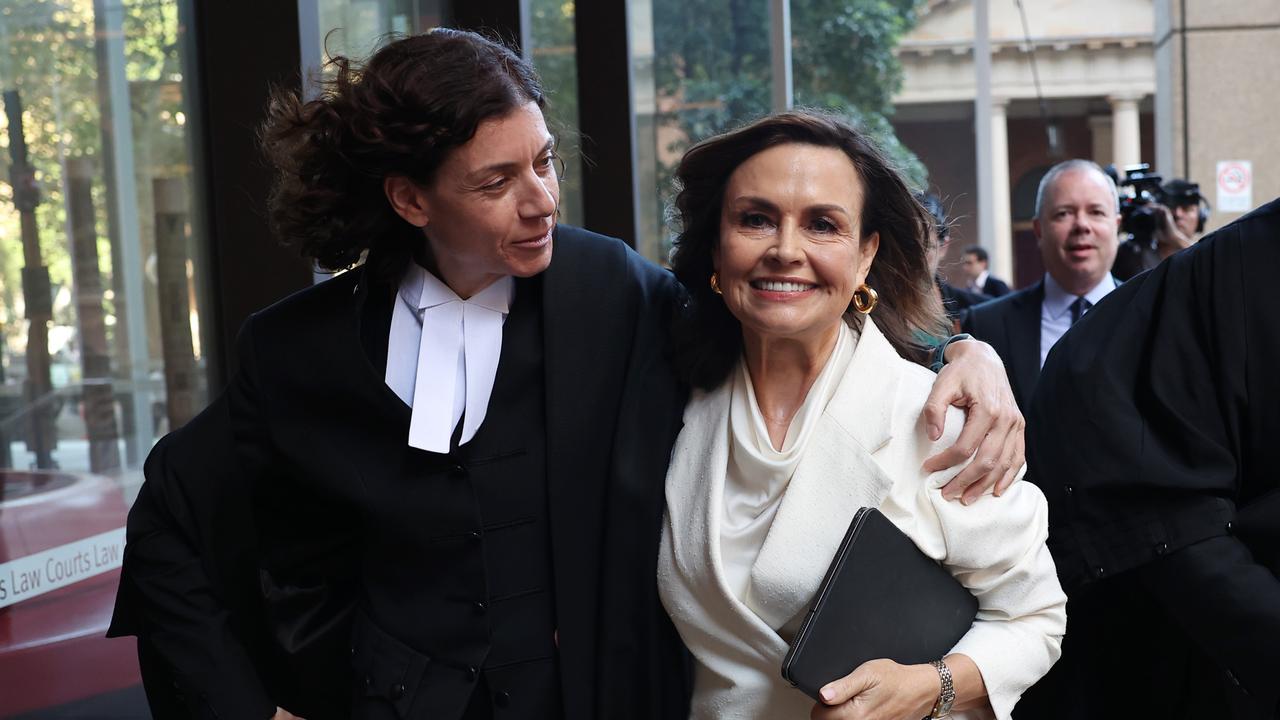Wilkinson’s extraordinary takedown of judge
Lisa Wilkinson’s legal team has lodged an extraordinary 11,000 word take-down of Justice Lee’s findings on her conduct.
EXCLUSIVE
Lisa Wilkinson’s legal team has lodged an extraordinary 11,000 word takedown of Justice Michael Lee’s findings on her conduct including her Logies speech.
Arguing the judge erred on multiple separate grounds, the broadcaster is now also seeking to overturn Justice Lee’s findings on her own conduct in his judgment in Bruce Lehrmann’s defamation case against Network Ten.
While Mr Lehrmann’s appeal could potentially see a court overturn the truth finding, Ms Wilkinson’s submissions argue that in that instance the Court of Appeal should uphold her personal defence of qualified privilege.
If a Court of Appeal overturns Justice Lee’s findings that the truth defence was upheld, a decision would have to be made on damages payable but the outcomes could be different for Channel 10 and Wilkinson depending on what the court finds in relation to her personal conduct.
In May, Justice Lee ruled on the balance of probabilities that Bruce Lehrmann raped Brittany Higgins on a couch in Parliament House in 2019 by being recklessly indifferent to her inability to consent to sexual intercourse – upholding Network Ten’s truth defence.
This was based on the civil standard on the balance of probabilities and Mr Lehrmann has appealed the Judgment. He maintains his innocence.
However, Justice Lee also delivered a scathing verdict regarding the conduct of Channel 10 including the decision to green-light Ms Wilkinson’s infamous Logies speech on the eve of Mr Lehrmann’s criminal trial.

It was “grossly improper and unjustifiable” Justice Lee found, because it implied Ms Higgins’ allegations were true in proximity to the ACT Supreme Court jury hearing evidence in the criminal trial.
The speech then led to Chief Justice Lucy McCallum delaying Mr Lehrmann’s criminal trial by three months.
“It was conduct apt to cause disruption to the criminal justice system and, without the Chief Justice making the orders she did, could have imperilled Mr Lehrmann’s right to a fair trial,’’ Justice Lee said in his judgment.
However he drew a distinction between Ten’s conduct and Wilkinson.
“Although I regard Ms Wilkinson’s conduct in giving the speech to be improper and unjustifiable, she has less culpability than those encouraging her to make the speech,” he said.
“Ms Wilkinson at least had the insight to seek advice and might not be expected to have the objectivity of others within Network Ten given the fact that she had, as Ms Smithies noted, become part of the story.”

High stakes legal challenge
The high stakes legal fight now unfolding stems from Mr Lehrmann’s decision to appeal that Judgement.
In a notice of contention filed with the Federal Court in June, Ms Wilkinson claimed Justice Lee made multiple errors both in his findings about her conduct and about the rape of Ms Higgins by Mr Lehrmann.
In the new submissions, Ms Wilkinson contends that if the appeal is allowed in relation to the defence of justification (truth), then Justice Lee should have found that she succeeded in her defence under s30 of the Defamation Act 2005, which is her qualified privilege defence.
“Alternatively, if the court considers that damages should have been awarded and proceeds to reassess the provisional award nominated by the primary judge, Wilkinson contends that (Justice Lee) erred in finding that her conduct in giving the Logies speech aggravated damages,’’ the submission states.
Ms Wilkinson was sued personally as a publisher of an episode of The Project that aired on Network Ten at 7pm on 15 February 2021 (Broadcast) in which Ms Higgins made allegations of sexual assault at Parliament House in February 2019.

Logies fallout
In the submissions, her legal team notes that, “Wilkinson did not submit or give evidence that she was ‘vexed and reticent’ to give the Logies speech as the primary judge erroneously implied.”
“On this appeal, for the avoidance of any doubt, Wilkinson submits that being nominated by her employer to give a speech in front her peers accepting a Logie award on behalf of her employer and colleagues was an incredible honour,’’ the submission states.
“Wilkinson was also not cross-examined about her evidence in her second affidavit that she raised the speech with the ACT Director of Public Prosecutions, including reading to him the substance of it, and he did not warn her against giving the speech.
“In making the finding that Wilkinson’s conduct was improper and unjustifiable, the trial judge erroneously failed to have regard to this evidence.”
Lehrmann not named
The fact that Mr Lehrmann was not named in the Broadcast was the first circumstance of publication that Wilkinson relied on at trial.
“These key findings about identification and causation (because Mr Lehrmann was not named in the Broadcast) are not referred to in His Honour’s consideration of the s30 defence despite being a significant part of “the circumstances”,’’ the submission states.
“It was an error to fail to assess Wilkinson’s conduct in the context of an unnamed perpetrator who, on the factual findings, was only reasonably identifiable by a small group of persons.”

Cover up allegations
The “cover-up” allegations that Justice Lee also made findings on are also disputed in Wilkinson’s new filing.
“Despite the fact that the term “cover-up” was not used in the Broadcast, his Honour wrongly conflated the “roadblocks” referred to in the introduction with an alleged “cover-up” and, throughout the findings on reasonableness, criticised Wilkinson in relation to this topic,’’ the submission states.
“The trial judge incorrectly found that this was “an extraordinarily serious allegation” of “conscious wrongdoing to secure a perceived advantage”:
“There was no imputation that the publishers sought to justify that related to that allegation – the truth or falsity of it was not in issue between the parties as to any aspect of the proceedings,’’ the submission states.
“The task for the Court is to examine the circumstances that have led to the publication of an otherwise undefended defamatory matter.
“It is not for the Court to assess the publisher’s conduct on the premise that the source was not telling the truth and the defamatory matter was false. The Court’s assessment as to the reasonableness of the respondents’ conduct should have been neutral as to the truth or falsity of the defamatory matter and therefore Ms Higgins’ credibility.
“Rather than undertaking the assessment of reasonableness for s30 from a neutral standpoint, the primary judge sought out and relied on material that the primary judge considered evidenced the unreliability of Ms Higgins (a matter that his Honour had considered and assessed in detail for the purposes of the justification defence).”

Wilkinson’s conduct
The primary judge accepted that the conduct of Wilkinson needed to be considered separately to that of Network Ten for the purposes of her defence under s30 of the Act.
“However, his Honour erred in his findings about this issue and failed to have regard to evidence relied on by Wilkinson on this topics’’ the submission states.
“Wilkinson was not disclaiming responsibility for the Broadcast nor seeking to suggest that she had “some kind of lesser responsibility”.
“Culpability as a publisher involves a wide spectrum of conduct. Similarly, in the consideration of reasonableness in publishing defamatory matter, individual conduct and control needs to be assessed.
“For the foregoing reasons, the trial judge should have upheld Wilkinson’s s30 defence and dismissed Mr Lehrmann’s claims against her on that basis,’’ the submission concludes.






